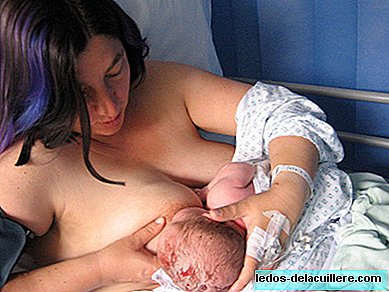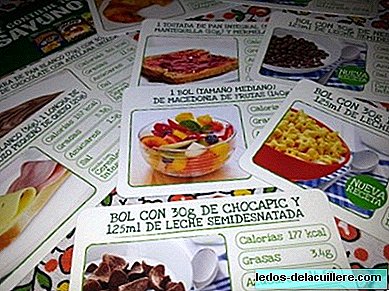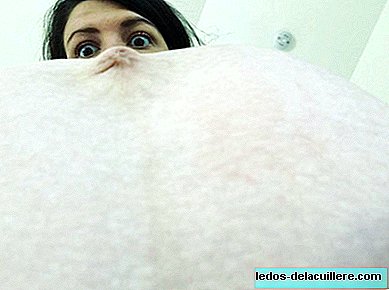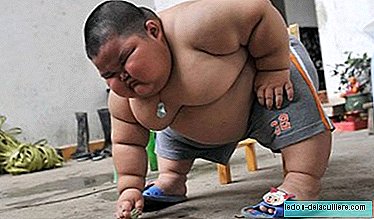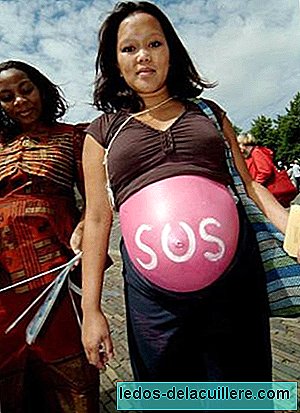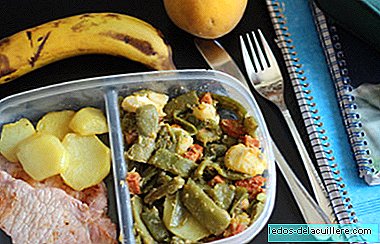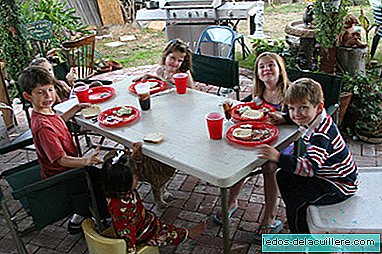
The well-being of our children depends on how they feedAs parents we must set an example and also convey the importance of meals. Our eating habits have changed a lot due to the introduction into our lives of factors related to the work of parents and the excess of tasks that children must face
In order to integrate back into family dynamics a respect for food as a source of health and relationship, we must be clear about some specific aspects that we have brought you in the form of a decalogue.
The main objectives that parents should consider as educators are the prevention of diseases that arise in relation to food and the acquisition of autonomy in children. This last point can turn them into adults who will know how to choose, prepare and eat healthy and nutritious foods, which can preserve their health. The eating habits of parents, grandparents, educators, etc. they must precede a social trend towards the consumption of certain fats, foods prepared with too many additives, excess protein. And they should also be able to prevent eating disorders and other problems such as obesity.
Our decalogue of healthy eating for children:
1.-The food must be varied enough to be able to provide us with the nutrients (vitamins, minerals, ...) that the little ones need to develop properly. Foods from all groups should be included, trying to maintain a balance between them.
Children should get used to perceive the different flavors and textures that food based on fresh and seasonal products offer us, and that from the first years of life. By this I do not mean that we should force them to eat foods that they reject, but we must offer them to try naturally
2.-We must include in the dishes, snacks, snacks, breakfasts and desserts, fruits and vegetables every day. These help prevent certain diseases and provide the body with minerals and vitamins, so necessary in times of growth.
3.-A good diet should also be based on the increased consumption of carbohydrates against animal fats and proteins. Let's look at how easy it is for us to consume hydrates: potatoes, legumes, cereals. To provide them with fiber we can also opt for the combination of whole grains with refined cereals.
4.-It is also important to regulate the energy contribution by implementing four or five meals a day, among which there will be three important ones (which is not synonymous with abundant) that are breakfast, lunch and dinner.
5.-Parents are responsible (in part) for the health of our children, so we must be able to educate in food. This includes teaching them everything we know about food (which is a lot), for example what functions vitamins develop, why proteins serve or how seasonal fruits and vegetables benefit us.
We also educate them if we accept their active participation, and encourage them, both in the purchase and in the preparation of food. And of course do not forget that the dishes should be appetizing, but it is not necessary that we emulate the recognized chefs, but develop our creativity and present them in different ways.
6.- We must all hydrate sufficiently, for this nothing better than water, children should receive the liquid they need. In summer, this is especially important, since sweat causes the body to eliminate fluids.
When they are very young we can offer them frequently, without waiting for them to be thirsty, and as they grow they will ensure that they find it easy to access the drinking water: bottle in the backpack, glasses and jug within reach in the kitchen.
7.- The physical exercise is more linked to food than it seems a priori, since it is a good way to burn fat that contains calories. In addition, the muscles and bones of our children (and ours), need to stay in shape, for this it is not necessary to practice a sport regularly (although there are children who do), but to bring them simple ways of moving: climbing stairs, walking by the city; and above all allow them to play running, climbing or jumping.
8.-And the hygiene It is also related to eating habits since it is necessary for children to wash their hands well before eating or handling food, and also to brush their teeth preferably after the three main meals, and if it is not possible after dinner and breakfast.
9.-Since food is an excellent means of family relationship, we must always perform (at least) a daily meal all together.
10.- Whenever possible we should dare to experiment with the unusual food preparation like ice cream, biscuits, complex dishes or jams. Because with this we provide children with a more extensive knowledge of the possibilities that staple foods have. And we also show you that the choice between buying a prepared meal, or making it ourselves is possible.
We hope that these tips have been useful to you, I know that to implement some of them it takes time, but we can propose it as a medium-term objective, and progressively incorporate improvements, so we will not have the feeling that it is not going well.




